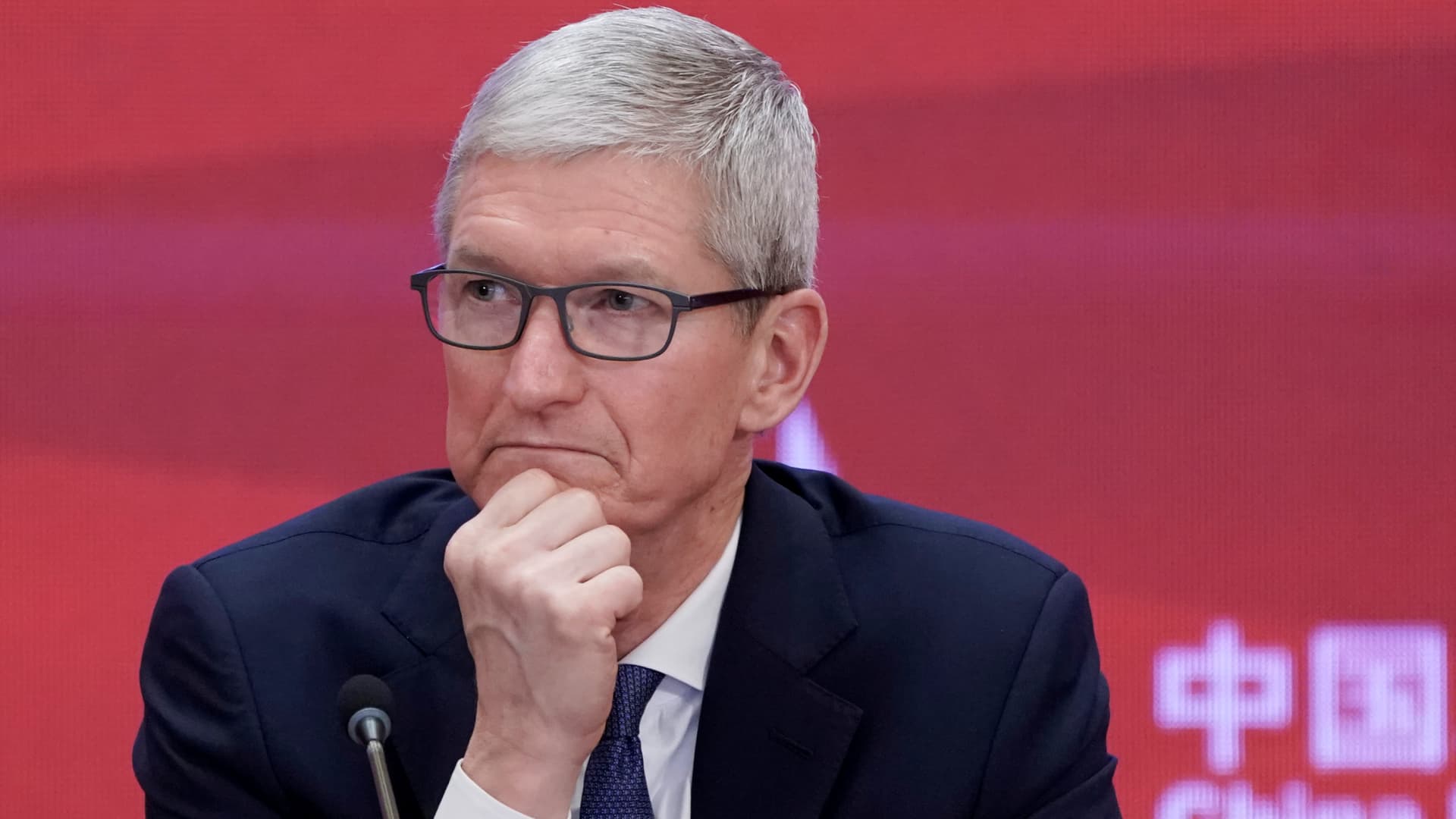Apple shares slip more than 3% after Barclays downgrade
Barclays analysts think that weak iPhone 15 sales may be a harbinger of weak hardware and iPhone 16 sales in the year ahead.

Apple CEO Tim Cook attends the annual session of China Development Forum (CDF) 2018 at the Diaoyutai State Guesthouse in Beijing, China March 26, 2018.
Jason Lee | Reuters
Apple shares slipped more than 3% in Tuesday morning trading, after Barclays downgraded the stock to underweight and slightly trimmed its price target from $161 to $160.
Barclays analyst Tim Long wrote in a note to clients Tuesday that the iPhone 15's current "lackluster" sales, specifically in China, presaged similarly weak iPhone 16 sales — weakness that Long expects will hold true for Apple's hardware sales broadly.
"We are still picking up weakness on iPhone volumes and mix, as well as a lack of bounce-back in Macs, iPads and wearables," Long wrote. Analysts and investors had noted specific weakness in China iPhone sales as far back as October.
Bloomberg has previously reported that the Chinese government has issued informal guidance forbidding state employees from using iPhones. The Chinese government has denied issuing such guidance.
Long expects that Apple's lucrative services business will also see decelerated growth, in part due to regulatory scrutiny. Gross margin in Apple's services businesses is roughly double the margin Apple makes on all its hardware products, and Apple CEO Tim Cook highlighted "better-than-expected" growth in that unit on an earlier investor call.
But Barclays doesn't necessarily believe that growth is reliable in the long term.
"In 2024, we should get an initial determination on the Google TAC, and some app store investigations could intensify," Long wrote, referring to the payments Google makes to Apple to retain its default search status.
Google CEO Sundar Pichai previously confirmed that the company pays 36% of its Safari search revenue to Apple. Regulators have been scrutinizing both Apple and Google and the default search status.

 Hollif
Hollif 































